Bird Nerd Blog Hoping to provide birdwatching help/information to anyone...
Read MoreBLOG
How do birds survive the winter?
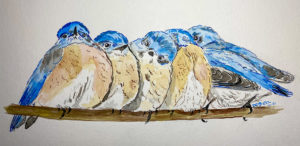 While we know a good number of birds fly south for the winter, we also know many birds are permanent residents of New England and in addition, for some birds, WE are their “southern destination”. All of these birds have to get through some cold wintery weather to survive. They brave subzero temperatures, wild snowstorms and blustery wind. It is not like they can slide off their boots at the end of a cold day and sit by a cozy fire with a nice cup of birdseed to warm up. Most birds have specific strategies to remain warm and safe through the long drolls of winter. We will discuss some of them here.
While we know a good number of birds fly south for the winter, we also know many birds are permanent residents of New England and in addition, for some birds, WE are their “southern destination”. All of these birds have to get through some cold wintery weather to survive. They brave subzero temperatures, wild snowstorms and blustery wind. It is not like they can slide off their boots at the end of a cold day and sit by a cozy fire with a nice cup of birdseed to warm up. Most birds have specific strategies to remain warm and safe through the long drolls of winter. We will discuss some of them here.
FOOD & WATER
Yes, the basic of all basics is even more important in the winter months for our avian friends. For many birds finding food first thing in the morning is of upmost importance. Usually, they have utilized a good amount of their fat stores keeping themselves warm overnight and need to replenish soon. A bird in winter especially uses food intake like coal in a furnace. Finding food in winter for birds can be more challenging than at other times of the year. Insect populations are rare, fruits and seeds can be hidden by snow and debris. Also, many other birds and other animals are fighting for these same limited resources. However, these birds do find food and the majority will make it through to sing from the treetops come spring.Feeding the birds can help, but despite the very popular hobby of bird feeding the birds would most likely be fine without us hanging out the suet.
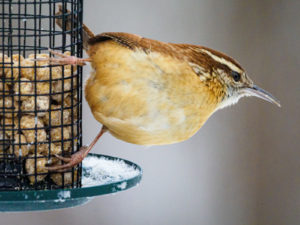
Birds like woodpeckers, nuthatches, and chickadees have spent nicer weather caching away seeds and other types of food in crevices and cavities. Seed pods from plants and berries also become a major source of food for many birds. In addition, insects hidden away in the bark of trees, small frozen caterpillars and overwintering spider eggs and other insects are available for the most investigative and resourceful birds.
SHELTER
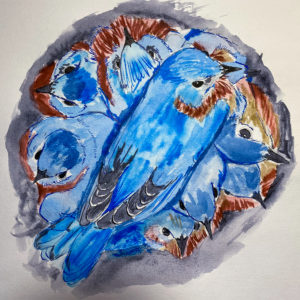
Many birds find shelter during the worst weather – that could be an already existing woodpecker hole, an empty birdhouse, a bush or just a crevice in the side of a tree. They all use similar strategies to keep them safe from the most daunting weather. At night some birds like chickadee and bluebirds may find a cavity and gather with other birds to conserver heat. Others may find a partially safe and hidden hollow of a bush and either sit alone with head and feet tucked into their feathers as much as possible or again huddled with other birds. Some birds such as Grouse will burrow into the snow to keep warm from the low outside temperatures. Even moving to the side of a tree where the wind isn’t hitting them is a known strategy for some birds to get through the worst weather.
PUFFINESS / BODY TEMP
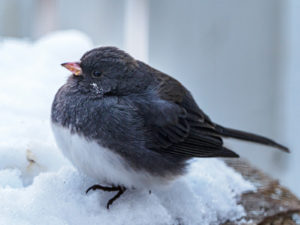
Yes puffiness. Birds will use this method to conserve the very crucial food sources that they consumed during the day. They will use their body heat and the thermal properties of feathers as well as shivering to stay warm. They puff out their feathers, taking in air that gets trapped in the feathers and warmed by their body, in essence acting like a down jacket trapping the heat. Also, birds have the ability to regulate their body temperature. Many will lower their body temp at night, which conserves energy and allows them not to have to maintain the higher body heat. This state is called torpor or hibernation mode and it is essential for a birds survival.
BONUS – Why don’t the feet of birds freeze?
Well, a lot of birds have a specific vascular system or blood system that runs through their legs and feet. The veins and vessels that carry blood to the feet are very close together. The blood that has been heated by the body moves past the blood coming up from the legs and it warms up that blood just enough to not interfere with maintaining sufficient body temperature. Also, because a birds blood pumps a bit faster than ours it has less time to freeze. Bird feet are mostly made up of tendons and bone and there are not a lot of soft tissues like muscle to freeze in the first place. All of these methods help make sure they don’t get frostbite.
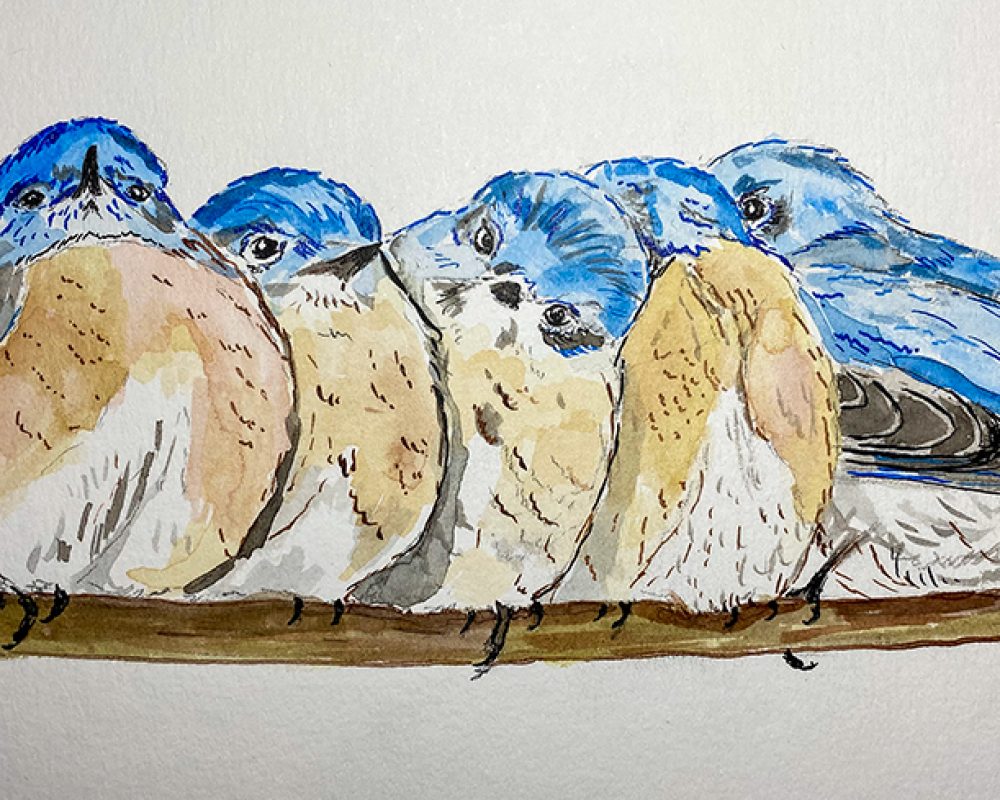
Check out my other blog entries
How do birds survive the winter?
Bird Nerd Blog Hoping to provide birdwatching help/information to anyone...
Read MoreA First Look at Identifying Birds
Bird Nerd Blog Hoping to provide birdwatching help/information to anyone...
Read More